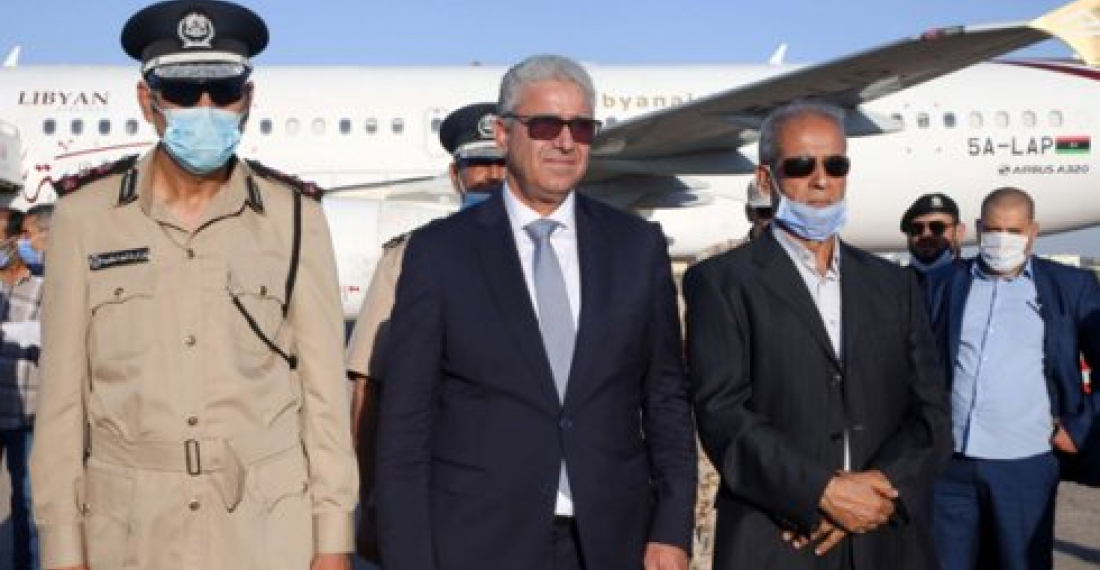More signs of sharp divisions and rifts between power figures in western Libya are emerging. Analysts see this divisions as part of struggles for influence and personal and personal ambitions, driven by regional loyalties. Differences started to appear after Fayez Al Sarraj recently announced his intention to resign as prime minister.
Libyan sources quoted by the Tunis publication Arab Weekly, say that the military leaders of the GNA have differences regarding the arrangements for the next stage in relation to the ongoing consultations taking place within the framework of the inter-Libyan dialogue. Turkey, which is becoming an increasingly important player in Libyan affairs, is wary of its possible decline of influence after Sarraj's departure and the formation of a new presidential council.
The struggle for power currently appears to be between Salah Eddine al-Nimroush, appointed by Sarraj not long ago as minister plenipotentiary for defence in the Government of National Accord, and Osama al-Juwaili, commander of the Western Military Region and the Joint Operations Room of the GNA. Juwaili did not hide his annoyance at Nimroush's appointment late August.
Juwaili's annoyance is said to be mainly due to the fact that he considers himself the best qualified to be Minister of Defence as he has a higher rank (being a major general) than Nimroush (who is a colonel). In addition, there are also the usual problems of regionalism and tribalism playing a role in the matter; Juwaili comes from Zintan, while Nimroush hails from its rival area of Zawiya.
Libyan political researcher Kamal al-Mirash believes that this conflict has deeper roots and motives and can't really be separated from the sharp conflicts between the various militias controlling western Libya, which took various forms as alliances shifted and changed, particularly now with the coming into play of the Turkish influence and of the Syrian mercenaries.
Speaking to The Arab Weekly by phone, Mirash expected this conflict to witness many twists and turns. Mirash believes that this conflict, which is likely to paralyse the Ministry of Defense in the GNA, "is encouraged by Fathi Bashagha who is hoping to weaken both Juwaili and Nimroush, so that he can take control of the capital, Tripoli, using Turkish influence and Syrian mercenaries in case armed confrontations with Tripoli's militias take place."
Nevertheless, some observers explain ongoing tensions as jockeying for a better representation at the table of the ongoing dialogues for a political solution, and ensuring personal gains after the settlement. That may also explain frequent reports of intensive meetings and consultations that a number of Libyan Muslim Brotherhood figures are currently conducting in Misrata, Libya, and Istanbul, Turkey.
Libyan political and media sources said that these meetings, bringing together leaders of political Islam organizations and leaders of armed groups loyal to the GNA, aim to prepare for the upcoming rounds of negotiations on the distribution of state positions, in accordance with the results of the Bouznika consultations in Morocco and the Montreux meetings in Switzerland.
source: commonspace.eu with Arab Weekly and agencies
photo: Libya's new strongman Fathi Bachagha (C) poses for a picture upon his arrival at Mitiga International Airport, east of the Libyan capital Tripoli, on August 29 (picture courtesy of AFP)






